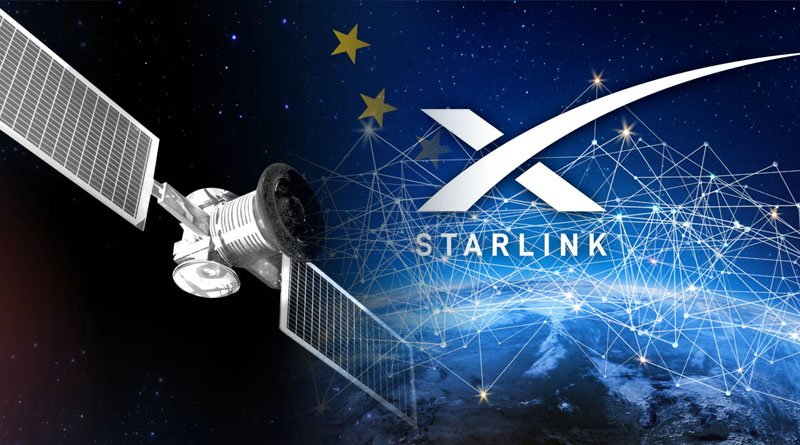Elon Musk’s Starlink satellite internet service is a massive undertaking, with over 3,000 satellites in orbit providing internet access to customers all over the world.

Elon Musk’s Starlink satellite internet service is a massive undertaking, with over 3,000 satellites in orbit providing internet access to customers all over the world. However, in recent months, a Chinese competitor has emerged, backed by Beijing, with ambitions that extend far beyond China’s borders.
After years of stalled plans, China’s satellite internet vision became clear in 2021 when Bao Weimin, a director of China Aerospace Science and Technology Corporation (CASC), confirmed that efforts were being centralised under an entity known as “Guo Wang,” or the national network.
Despite the fact that a few proposals had previously been floated by private and state-backed Chinese companies for internet beaming from satellites in low-Earth orbit—tthe zone occupied by Starlink—no large-scale effort materialized.
The International Telecommunication Union then received a filing that made everything clear. The request, which sought approval for nearly 13,000 satellites on behalf of a Chinese company called “GW,” revealed the Chinese space industry’s global vision for a global broadband satellite internet network.
Despite the plans for a Chinese satellite internet service large enough to compete with Starlink, four industry experts told Rest of the World that, unlike Starlink, China’s global satellite internet project will be developed and managed by the government.
“It is unlikely that a truly private space company will lead the development of a low-Earth orbit satellite internet constellation,” said R. Lincoln Hines, an assistant professor at the United States-based Air War College who specialises in Chinese space power, in an email to Rest of World.
“It is possible that we will see a subsidiary or spinoff of an SOE [state-owned enterprise], but this will rely primarily on state capital.”
As the Chinese government has pushed the country’s tech entrepreneurs to shift their focus away from perceived frivolities such as e-commerce and gaming and toward critical high-tech infrastructure such as satellite internet, dozens of startups have flooded into an industry that was previously the sole domain of the military. These businesses specialize in everything from launch vehicles to satellite manufacturing.
Although Beijing hopes to boost technological innovation and manufacturing capacity at private satellite companies, it is “unthinkable” that control over any broadband internet service from space would be left in private hands, according to Blaine Curcio, a Hong Kong-based satellite industry consultant who has worked with Starlink and OneWeb.
“Ultimately, the state will be in charge of building the Chinese version of Starlink,” he said. “At best, these companies developing this technology hope to serve as suppliers to the state-owned constellation.”
China’s space companies are looking to beat out Musk’s venture to beam broadband internet from space not just into China, but around the world.
According to Lan Tianyi, founder of Beijing-based aerospace consultancy Ultimate Blue Nebula, China’s ground network infrastructure is comprehensive enough that there may not be a huge need for satellite internet.
“Ultimately, the task of building the Chinese version of Starlink is going to be done by the state.”
China has roughly two dozen satellite constellation projects underway, and startups have flooded into the sector since 2014. A number of countries that have signed partnerships with Chinese entities under the Belt and Road initiative have agreed to use China’s satellite navigation system, BeiDou.
Countries like Belarus, Venezuela, and Pakistan may be similarly intrigued by Chinese-made satellite internet service.
Beijing-based start-up GalaxySpace has launched six satellites, bringing its total in orbit to seven. With their ground data processed by Four Squares Technology, another Beijing startup, GalaxySpace says it will eventually offer internet speeds nearly five times faster than Starlink.
But, by March of last year, when GalaxySpace successfully launched 6 satellites, Starlink had already launched 2,000. According to experts who spoke with Rest of world, it is nearly impossible to separate China’s commercial space startups from the government.
Some, like GalaxySpace, share personnel—Deng Zongquan, the chairman of GalaxySpace‘s technical committee, also runs the government’s scientific research arm, the National Basic Research Program—and expressly plan to cater to the government’s broadband internet project.
Regardless of how much these industries are allowed to develop, Beijing tightly controls the internet, and internet service in China is only provided by state-backed telecom operators.
“In some ways, the government has opened up the industry to commercially driven innovations,” Curcio said. “However, the big project, Guo Wang, is still pretty directly controlled by the state.”
In April 2020, China’s National Development and Reform Commission designated satellite internet as a critical infrastructure priority. At the time, Starlink had just completed a critical milestone: it had met its goal of launching roughly 60 satellites into space every two weeks.
The government’s designation of satellite internet as critical infrastructure signalled approval for the industry’s rapid development.
In November 2022, at China’s largest space industry event, the Zhuhai Airshow in southern Guangdong, one exhibition stood out above the rest: a massive radar array more than two stories tall.
It wasn’t designed to track the movements of planets and stars. Its purpose was to forecast the movements of satellites in low-Earth orbit. The majority of the traffic is carried by Starlink satellites. However, if China’s plans work out, that may soon change.
